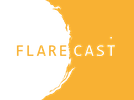What is all the buzz about RRI? My first try at finding out took place a year ago at a science communication conference in Garching.
The situation is the following: Since the beginning of this century, science communication went through several stages:
- Public Understanding of Science (one way communication: scientists explain, the public learns)
- Dialog with the Public (two way communication)
- Public Engagement in Science (creating situations in which the public experiences doing science)
Currently, we aim at fostering ‘Public Participation in Science’, for example by involving lay people in citizen science projects such as SunSpotter.org.
Still not good enough? This seems to be the case. The next new thing is already on it’s way: Responsible Research and Innovation RRI. However, last year in Garching nobody had a clear idea about what this was and what kind of science communication the EC would expect us to do in the future. The general mood was: help yourself, be creative and try to reach as many people as you can.
My next try at finding out more about RRI took place at last week’s Ecsite conference (the European conference for science communication) in Graz with several sessions dedicated to RRI. First impression: although there are several running H2020 projects about RRI, the experts are still struggling with a clear definition.
Anyway, behind the bulky term ‘Responsible Research and Innovation’, some major changes in the relationship between science and society seem to be in the planning. And it is not just about how we communicate but how we do science and how its success will be defined in the future. Scientific excellence will not exclusively be measured by the number of peer reviewed publications, citations and participations in conferences, but by other criteria. Which ones, though? A currently much used name for this new way of doing science is ‘Open Science’.
According to Wikipedia,
Open Science is the movement to make scientific research, data and dissemination accessible to all levels of an inquiring society, amateur or professional.
Responsible Research and Innovation / Open Science seems to be a European endeavour to democratize science.
One of the first questions concerning democratic science is how lay people can decide what scientists should do. Well, they already are deciding – directly or indirectly. It is true that democratic decisions impacting science have not always been taken by well informed citizens. At the Ecsite conference, a science communicator thus claimed: Make science more complicated again!
Still, RRI is not just about providing better information. It is about a new, not yet defined, relationship between science and society. Discussing diversity and inclusion in one of the Ecsite sessions, a science communicator pointed out that science didn’t belong to the scientists but to all. It was not the achievement of an individual but the result of building upon knowledge gathered over many generations and in many places of the world.
In the future, we may have to deal with such questions more often, for example, when planning projects to be funded by the EC. At least, the impact section of a proposal will have to include RRI elements.
Is there anything we can already do in FLARECAST to steer the project into the right direction? Last week, it became clear to me that RRI is not about doing more science engagement but about doing and thinking about it differently. It’s about a concept of science as a societal matter rather than an individual achievement/career. A step into this direction could be to strengthen our networking activities and look for collaboration opportunities in ways not thought of before. In my oppinion, the minimum to start with in FLARECAST is to take seriously what the reviewer recommended:
- to increase communication between the work packages and
- to include other experts to our stakeholder workshops, possibly opening them up to more people than we had originally planned.
These are my personal thoughts. You may see it differently. I am looking forward to discussing these and other ideas soon at this month’s consortium meeting in Genova.
